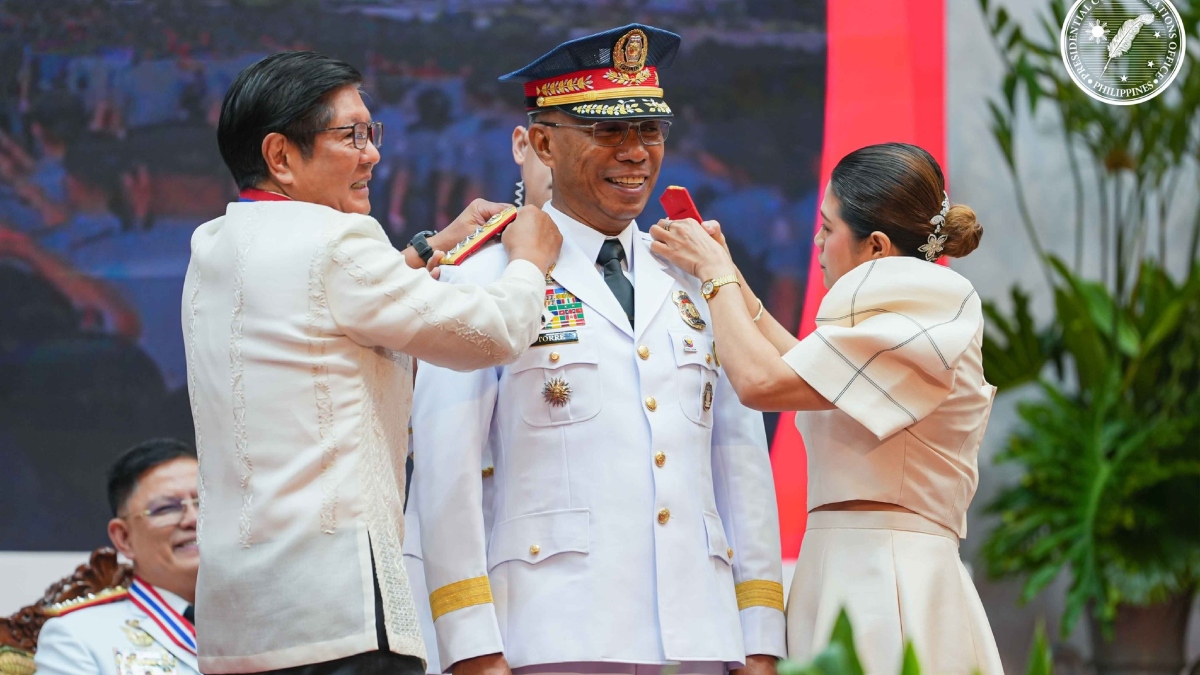New Philippine National Police (PNP) chief Gen. Nicolas Torre III has announced the nationwide implementation of his signature “three-minute response” policy, a strategy he first put into place as the director of the Quezon City Police District. The approach promises a rapid deployment of officers to emergency situations in major urban centers.
“This is not just a benchmark, it is a lifeline,” Torre declared during the turnover ceremony on June 2 at Camp Crame, led by President Ferdinand Marcos Jr. “Every call for help deserves immediate action and attention.”
President Marcos, who officiated the change of leadership from outgoing PNP chief Gen. Rommel Marbil, challenged Torre to uphold the integrity of the force and swiftly act on cases involving erring police officers. “Let’s make Filipinos feel that there is a police force that is ready to help and defend them at all times,” the President urged.
In his speech, Torre emphasized three core values that will guide his leadership: swift response, internal unity, and accountability. He committed to upgrading anti-cybercrime tools and modernizing investigative units to tackle new forms of criminality. “A divided force cannot defend a nation,” he said, underlining the importance of discipline and leadership by example.
Torre is also eyeing a shift in how police officers are deployed. He proposed replacing 12-hour shifts with eight-hour rotations to ensure more visibility and quicker responses in Metro Manila and other city centers. He believes this move will not only improve efficiency but also give officers more time with their families.
Additionally, Torre plans to deactivate underutilized police community precincts, which he described as often becoming places for “loitering.” He stressed that police presence should be active, mobile, and embedded in communities, not confined to stationary posts.
The new PNP chief also made it clear that he expects professionalism and responsiveness at all levels. He warned station commanders against withholding information from the media and ordered officers to assist all individuals who come to their stations — even for non-police concerns. In such cases, he said officers should personally escort citizens to appropriate government agencies, such as the Department of Social Welfare and Development.
Torre encouraged the public to call 911 if any officer refuses to help, noting that complaints will be acted on. However, he stated he does not believe in publicly shaming erring officers, opting instead for disciplinary action behind closed doors. “Behind closed doors, he would be seeing and hearing the ‘disciplining’ I’m talking about,” Torre told reporters.
As part of his anti-narcotics drive, Torre directed police commanders to focus on increasing drug-related arrests while ensuring due process. “I have to reiterate that all of these actions must be done within the ambit of the law, evidence-based and rights respecting,” he said. He also underscored that suspects should be taken alive whenever possible, implicitly distancing the current administration from the previous drug war’s heavy death toll.
Torre, a native of Jolo, Sulu, becomes the fourth PNP chief under President Marcos. Notably, he previously led high-profile operations, including the arrests of former president Rodrigo Duterte and Apollo Quiboloy.
In his farewell message, Marcos thanked Gen. Marbil for bringing professionalism and human rights to the forefront of PNP’s reforms. “You guided our officers to serve with integrity and in doing so, you restored the people’s confidence in the uniform that the police wears,” the President said.






